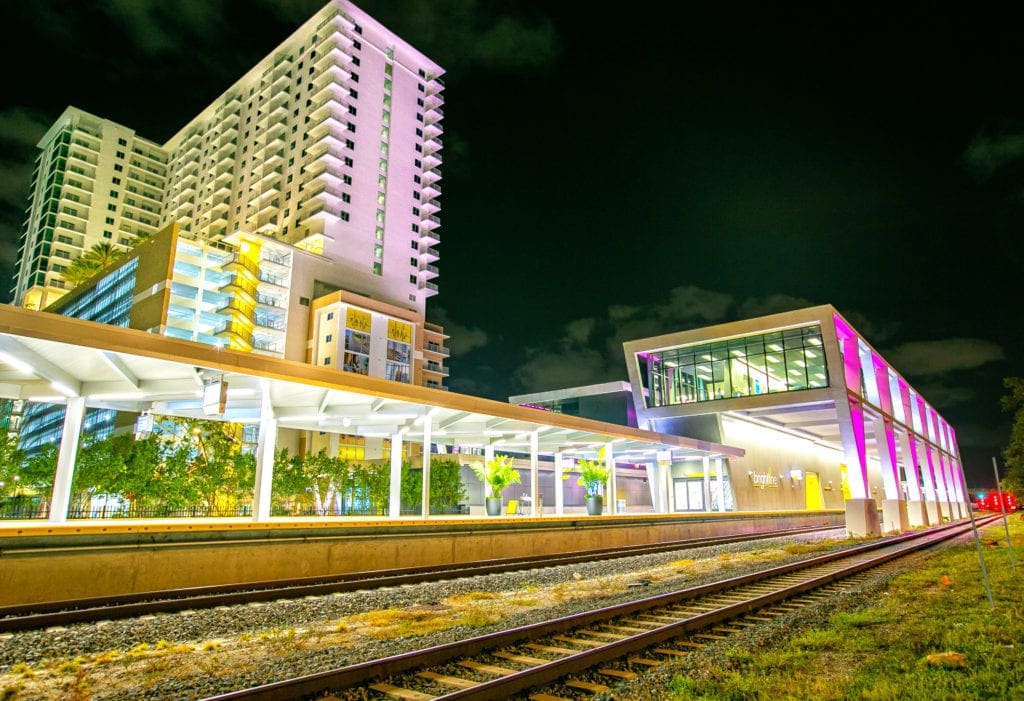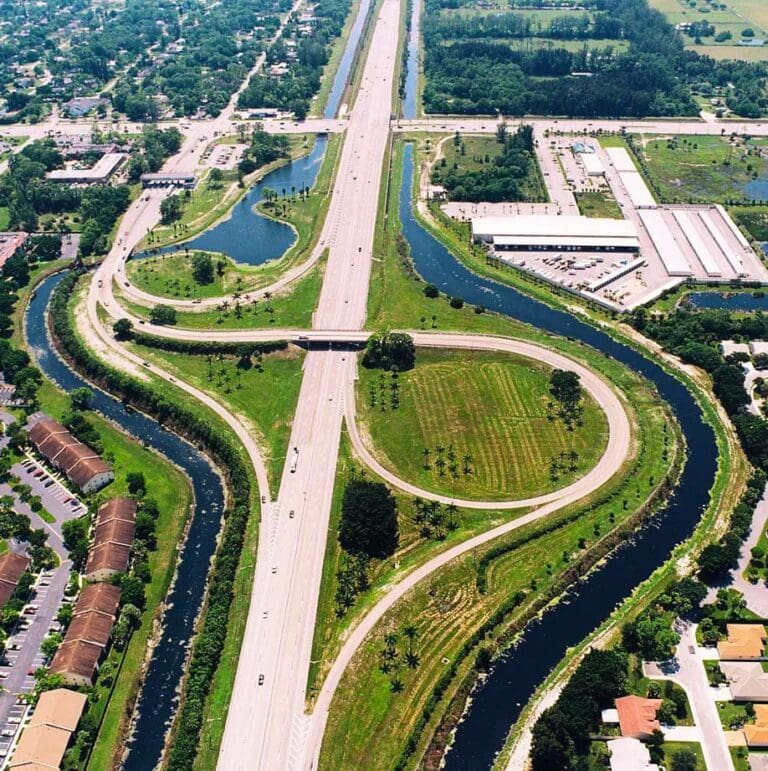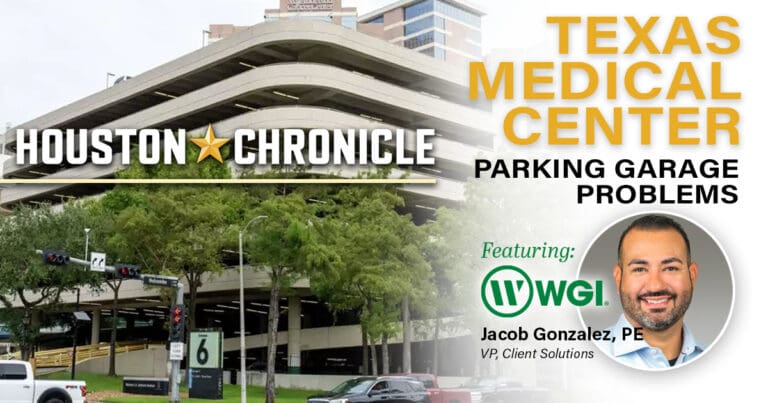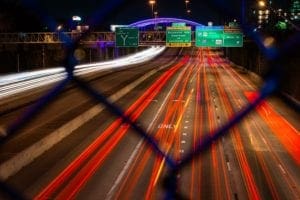This article originally appeared in the February 2021 issue of Parking Magazine. Click here to view the full article on Page 22.
by Jeremy Rocha, P.E.
As retail morphs into e-tail, parking designs must be adaptable.
Heraclitus, a Greek philosopher, famously said, “Change is the only constant in life.” That’s certainly true for retailers.
Over the past 20 years, e-commerce has transformed the retail landscape. Within that time frame, e-commerce has grown nearly twentyfold in the U.S., from $28 billion to over $520 billion in 2019, according to the U.S. Department of Commerce.
The COVID-19 crisis led to an extraordinary increase in e-commerce in 2020, with a 44.4% increase in Q2 and a 37.1% increase in Q3.
New e-tailers have successfully emerged by the thousands, while many established brick-and-mortar retailers have faced unprecedented sales struggles. As a result, many established retailers have reevaluated their business models and started to adapt by introducing their own e-commerce platforms.
By offering in-store and online service, they’ve been able to develop a hybrid solution that offers consumers the choice to shop based on their preference. There can still be a slight advantage to in-store shopping, especially for those items people want to see and touch before making their decision.
Further, many retailers are evolving to “purchase online, pick up in-store.” This transition may be the most important retail trend of recent years.
Contactless Shopping Experience
Retailers offer two options with hybrid shopping: online with home delivery or online with curbside pickup. Shoppers can purchase products online from local or national retailers and receive home delivery.
Or they can drive to the store for curbside pickup, where store employees deliver products straight to their vehicles. This option combines the best of the physical and online shopping experiences and can be a great option for shoppers who know what they want.
There’s no searching the aisles, standing in checkout lines, or waiting for product delivery.
Retail Parking Reboot
One of the biggest challenges facing retailers in transitioning to e-tail shopping is parking. Beyond traditional parking lots, retailers and property owners need to adapt to the new freight and curb requirements. Flexible traffic flow is essential.
Coordination with local jurisdictions is also critical to ensure that no rezoning or changes in occupancy occur or are required as this could be a long process.
Freight and Delivery Access
The push for online sales means less storefront and more warehouse. More e-commerce means more delivery trucks crossing the property as well as more semitrailers to bring new products for warehousing.
The addition of loading docks to serve e-commerce affects traffic flow on a property’s footprint.
As more loading docks are added over time — and more semis and delivery trucks — traffic patterns and staging areas are affected all the more.
Curbside Flow
At the same time as warehouse traffic shifts, the way in which personal vehicles are using parking areas will change, too.
As retail space is converted to warehousing and distribution, less retail parking is typically needed. However, parking areas may see different uses.
For instance, curbside pickup remains a common service; retailers will need to alter their parking areas to accommodate this. Short-term vehicle parking areas will need to be placed as conveniently as possible to the in-store merchandise “parking” area. The goal will be to add discrete e-commerce pickup/dropoff areas away from store entrances.
This would make the experience much more convenient for e-commerce customers, but it’s also an important safety measure.
Stores don’t want drivers who are just picking up or dropping off returns to be driving where shoppers are walking in and out of stores.
Flexible Parking Design
One of the most significant hazards in any lot or garage is the risk of drivers being hit by other cars after they leave their vehicles.
It’s essential to minimize that risk by designing parking areas that reduce interactions between pedestrians and moving vehicles. Properly identifying pedestrian and vehicular realms is key.
Three-Phase Approach
Flexible parking design requires a three-phase approach.
To build in design flexibility, the operations plan should include scenarios that account for typical operations, peak seasonal operations, and future considerations.
This will allow the designer to create a baseline parking facility design that maximizes the current use and safety and builds in future flexibility.

In a lot, this typically means allowing for restriping spaces, pickup areas, and commercial loading areas while making sure the lighting layout, landscape requirements, and detention don’t limit flexibility.
All property entrances, exits, and vehicle portals may need adjustment to keep private vehicles away from commercial trucks — and pedestrians away from dropoff/pickup areas.
Adaptable Garage Options
In garages, the flexibility tends to be built into the structure itself, and we are seeing the grade level become future-proofed. We are providing higher floor-to-floor heights to accommodate larger vehicles such as delivery vans and even semi-trucks.
We are also providing column spacing to accommodate the larger vehicles on the first floor in the event we have to flex in that direction. There is a huge emphasis on the operations and where the drivers park their personal vehicles and access their delivery vans.
Safety and convenience do not stop at the customer. There is a major emphasis on the employee experience, too. We are implementing safety scenarios for the flex design as we are seeing a huge emphasis on safety for both parking lots and parking structures.
Plan Ahead
The world of retail is evolving, and today’s retail parking environment requires a new mindset around flexibility and safety. A simple rework and reflow of current parking options can aid retailers in meeting new customer demands.
Planners & Designers Can Reshape Parking Design

Planners and designers need to determine what individual uses different parking areas need to meet their goals from an operational and functional perspective. They now need to take into account the new traffic demands of an e-commerce pickup zone and a return zone as well as regular parking and pedestrian traffic into the physical store.
A study should help define the store’s baseline operations plan. It will review the overall parking area, all site vehicle traffic, pedestrian traffic, and individual areas in the parking facility to determine how they can be fully used. Signage, technology, and functional design should be leveraged to manage and minimize interaction between vehicles and pedestrians.
LET’S TALK!
For more information about this article and how WGI can help you plan for the future, contact us today to speak directly with one of our team members.
This article originally appeared in the February 2021 issue of Parking Magazine. Click here to view the full article on Page 22.






















